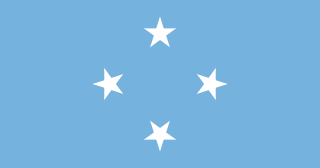
The Federated States of Micronesia, or simply Micronesia, is an island country in Micronesia, a subregion of Oceania. The federation consists of four states—from west to east: Yap, Chuuk, Pohnpei, and Kosrae—that span across the western Pacific just north of the equator, for a longitudinal distance of almost 2,700 km (1,700 mi). Together, the states comprise around 607 islands and a combined land area of approximately 702 km2 or 271 sq mi.
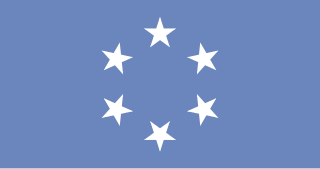
The Trust Territory of the Pacific Islands (TTPI) was a United Nations trust territory in Micronesia administered by the United States from 1947 to 1994. The Imperial Japanese South Seas Mandate had been seized by the US during the Pacific War, as Japan had administered the territory since the League of Nations gave Japan a mandate over the area from Imperial Germany after World War I. However, in the 1930s, Japan left the League of Nations and invaded additional lands. During World War II, military control of the islands was disputed, but by the war's end, the islands had come under the Allies' control. The Trust Territory of the Pacific was created to administer the islands as part of the United States while still under the auspices of the United Nations. Most of the island groups in the territory became independent states, with some degree of ties kept with the United States: the Federated States of Micronesia, Marshall Islands and Palau are today independent states in a Compact of Free Association with the US, while the Northern Mariana Islands remain under US jurisdiction, as an unincorporated territory and commonwealth.

The member states of the United Nations comprise 193 sovereign states. The United Nations (UN) is the world's largest intergovernmental organization. All members have equal representation in the UN General Assembly.

The United Nations Regional Groups are the geopolitical regional groups of member states of the United Nations. Originally, the UN member states were unofficially organized into five groups as an informal means of sharing the distribution of posts for General Assembly committees. Now this grouping has taken on a much more expansive and official role. Many UN bodies are allocated on the basis of geographical representation. Top leadership positions, including Secretary-General and President of the General Assembly, are rotated among the regional groups. The groups also coordinate substantive policy and form common fronts for negotiations and bloc voting.
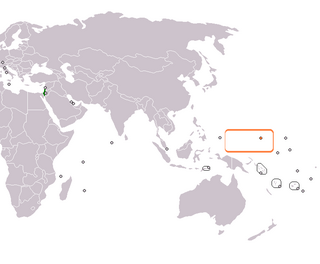
Israel – Micronesia relations are diplomatic and other relations between the State of Israel and the Federated States of Micronesia. Israel was among the first countries to establish formal diplomatic relations with Micronesia.
The Federated States of Micronesia joined the United Nations on September 17, 1991, five years after obtaining its independence from the United States of America. Since December 2011, its ambassador to the United Nations has been Jane J. Chigiyal. Although de jure sovereign, the F.S. Micronesia is bound by a Compact of Free Association with the United States, which provides it with "substantial financial support".
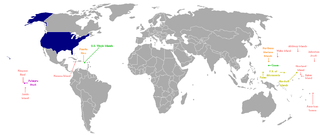
United Nations Security Council resolution 683, adopted on 22 December 1990, after recalling Resolution 21 (1947) which approved the Trusteeship Territory of the Japanese Mandated Islands as well as Chapter XII of the United Nations Charter which established the United Nations Trusteeship system, the council determined that, in the light of entry into force of new status agreements for the Federated States of Micronesia, the Marshall Islands and the Northern Mariana Islands, the objectives of the Trusteeship Agreement had been completed and therefore ended the Trusteeship Agreement with those entities.

United Nations Security Council resolution 702, adopted without a vote on 8 August 1991, after examining separately the applications of the Democratic People's Republic of Korea and the Republic of Korea for membership in the United Nations, the Council recommended to the General Assembly that North Korea and South Korea be admitted.

United Nations Security Council resolution 704, adopted without a vote on 9 August 1991, after examining the application of the Marshall Islands for membership in the United Nations, the Council recommended to the General Assembly that the Marshall Islands be admitted.

United Nations Security Council resolution 709, adopted without a vote on 12 September 1991, after examining the application of the Republic of Estonia for membership in the United Nations, the Council recommended to the General Assembly that Estonia be admitted.
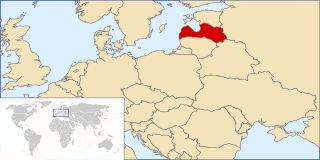
United Nations Security Council resolution 710, adopted without a vote on 12 September 1991, after examining the application of the Republic of Latvia for membership in the United Nations, the Council recommended to the General Assembly that Latvia be admitted.

United Nations Security Council resolution 711, adopted without a vote on 12 September 1991, after examining the application of the Republic of Lithuania for membership in the United Nations, the Council recommended to the General Assembly that Lithuania be admitted.
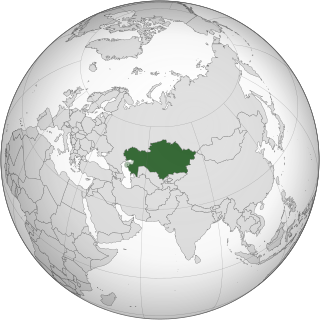
United Nations Security Council resolution 732, adopted without a vote on 23 January 1992, after examining the application of the Republic of Kazakhstan for membership in the United Nations, the Council recommended to the General Assembly that Kazakhstan be admitted.
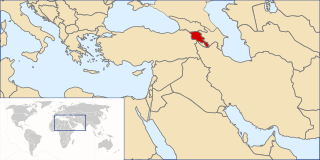
United Nations Security Council resolution 735, was adopted without a vote on 29 January 1992, after examining the application of Armenia for membership in the United Nations. The Council recommended to the General Assembly that Armenia be admitted.

United Nations Security Council resolution 753, adopted without a vote on 18 May 1992, after examining the application of the Republic of Croatia for membership in the United Nations, the Council recommended to the General Assembly that Croatia be admitted. The recommendation came amid the breakup of Yugoslavia.

United Nations Security Council resolution 754, adopted without a vote on 18 May 1992, after examining the application of the Republic of Slovenia for membership in the United Nations, the Council recommended to the General Assembly that Slovenia be admitted. The recommendation came amid the breakup of Yugoslavia.

United Nations Security Council resolution 755, adopted without a vote on 20 May 1992, after examining the application of the Republic of Bosnia and Herzegovina for membership in the United Nations, the Council recommended to the General Assembly that Bosnia and Herzegovina be admitted. The recommendation came amid the breakup of Yugoslavia.
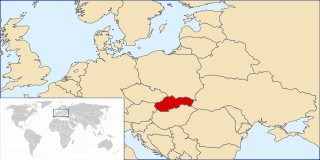
United Nations Security Council resolution 800, adopted without a vote on 8 January 1993, after examining the application of the Slovak Republic for membership in the United Nations, the Council recommended to the General Assembly that Slovakia be admitted.

The Republic of Korea and the Democratic People's Republic of Korea were simultaneously admitted to the United Nations (UN) in 1991. On 8 August 1991, the UN Security Council passed Resolution 702, recommending both states to the General Assembly for membership. On 17 September 1991, the General Assembly admitted both countries under Resolution 46/1.

Democratic Federal Yugoslavia was a charter member of the United Nations from its establishment in 1945 as the Socialist Federal Republic of Yugoslavia until 1992 during the Yugoslav Wars. During its existence the country played a prominent role in the promotion of multilateralism and narrowing of the Cold War divisions in which various UN bodies were perceived as important vehicles. Yugoslavia was elected a non-permanent member of the United Nations Security Council on multiple occasions in periods between 1950 and 1951, 1956, 1972–1973, and 1988–1989, which was in total 7 years of Yugoslav membership in the organization. The country was also one of 17 original members of the Special Committee on Decolonization.



















